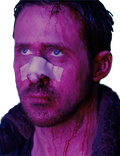WHERE TO GET THE BOOK: http://libgen.is/book/index.php?md5=F6B31A8DAFD6BD39A5986833E66293E6
People have been kind enough to link the audiobook in past posts, so hopefully they'll do that here, too.
CHAPTER ONE: WHAT IS AUTISM, REALLY?
In this chapter, Dr. Price discusses what the popular perception (read: stereotype) of Autism is, as opposed to what it actually is, and how it is just as much a social thing as it is a medical thing. How Autism often goes undiagnosed in people of color, women, gender nonconforming people, etc. He discusses the concept of neurodiversity and how it applies to ASD and ADHD people, AuDHD people, schizophrenics, BPD people, people deemed "low intelligence" or "low-functioning," etc. and how neurotypicality is not so much a described set of behaviors as an oppresive social ideal that literally everyone deviates from in some small way at least.
There's a heartbreaking passage in here where Dr. Price recounts his father tearfully revealing his cerebral palsy and seizure disorder to him as if it was a source of secret shame, how this is tragically rational because if he didn't hide it it might lead to losing his job or other forms of discrimination that disabled people of all stripes face. How avoiding a label can be a social asset in a world that deems you unfit for public life in many ways if you're labeled autistic. How even a late diagnosis can open you up to a world of new possibilities, and get rid of toxic shame you've had for a long time.
There's discussion of how the stereotype of Rainman Bazinga Sheldon ![]()
![]() is tied into the roots of Autism's first descriptions in medical literature, and how Hans Asperger played a role in this with his eugenicist beliefs and willing cooperation with the Nazi regime to exterminate children dubbed Autistic (as opposed to "useful" ones that could be trained to fit in as a lower class of person -- essentially "Asperger's" meant you got to live) and how that harms minority Autistics, causing them to go undiagnosed or forcing them to mask in more fundamental, soul-crushing ways, to avoid social misunderstandings that can literally be deadly for them.
is tied into the roots of Autism's first descriptions in medical literature, and how Hans Asperger played a role in this with his eugenicist beliefs and willing cooperation with the Nazi regime to exterminate children dubbed Autistic (as opposed to "useful" ones that could be trained to fit in as a lower class of person -- essentially "Asperger's" meant you got to live) and how that harms minority Autistics, causing them to go undiagnosed or forcing them to mask in more fundamental, soul-crushing ways, to avoid social misunderstandings that can literally be deadly for them.
From there we get a medically and socially up-to-date definition and breakdown of what Autism is, a simple explanation of some of the neurobiology involved, the neurological markers like focus on details and diminished ability to prioritize and differentiate stimuli and delayed emotional processing, and the various medical, psychological, and social impacts Autism has on those who are Autistic. There's a lot in here on neurodiversity, intersectionality, how stereotypes were formed, how to start recognizing them as such. There's also a lot on how unfairly the medical community and especially health insurance treats neurodivergent people, and so on.
Most importantly, this is where Dr. Price first advocates for the notion of Autistic self-determination. He stresses "self-determination" or "self-realization" over "self-diagnosis" because of the social aspect of Autism, and promises to expand on this notion further, which indeed he does.
So, discussion questions:
- What did you think of this chapter? Is there anything new you learned? Anything that really activates those almonds, gets the noggin joggin'?
- Are there any passages that really stuck out to you? Something you think warrants deeper discussion or really crystallizes something you were struggling to express or share?
- Any certified "literally me" moments that touched you?


- Anything you hope to explore further in upcoming chapters?
Tag post to follow, plus my thoughts in another post.

Turns out I had made it to chapter 2, and the audio book does signal chapters, but I had paused it just before the chapter break! Maybe I'd heard the break in narration and recognised it as a good place to stop. Will write up my thoughts shortly.